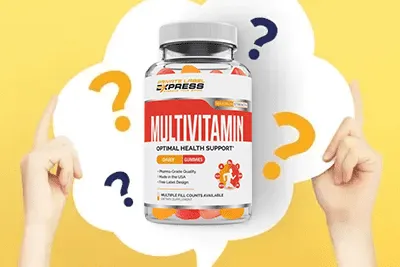In the ever-growing health and wellness industry, supplements are a staple in many people’s daily routines. Among the different types of supplements, private label vitamins have gained significant attention in recent years. But what makes private label vitamins different from mass-produced supplements? Let’s dive into the key differences, advantages, and why choosing private label vitamins might be the best option for your health.
Understanding Private Label Vitamins
Before we get into the differences, it’s essential to understand what private label vitamins are. In simple terms, private label vitamins are supplements manufactured by a third-party manufacturer but sold under the brand name of another company. This allows businesses to market high-quality supplements without investing in their own manufacturing process. These vitamins are made to the business's specifications, giving them flexibility in terms of formulation, branding, and packaging.
Private label vitamins come in various forms—capsules, tablets, gummies, powders, and more—tailored to meet specific needs. Whether you want to create a unique line of vitamin C supplements or customize multivitamins for a specific target audience, private label options give you the freedom to do so.
Mass-Produced Supplements: A Standard Approach
Mass-produced supplements, on the other hand, are manufactured by large-scale companies that produce vitamins for multiple brands. These supplements are widely available, often in supermarkets, pharmacies, and online retailers. However, mass-produced vitamins are typically made in large batches with standardized formulas that do not offer the same level of customization or brand individuality as private label vitamins.
While mass-produced vitamins can be cost-effective due to their large-scale production, they may lack the unique features that many consumers are looking for in a supplement. They are generally formulated with a broad audience in mind, which can lead to less specificity in ingredients, dosages, and overall quality.
Key Differences Between Private Label and Mass-Produced Supplements
1. Customization and Flexibility
One of the primary advantages of private label vitamins is the ability to customize the product. Businesses can work with manufacturers to create a supplement tailored to their brand's identity and the specific needs of their customers. Whether it’s choosing the right ingredients, formulating unique blends, or adjusting dosages, private label vitamins allow for a high degree of flexibility.
In contrast, mass-produced supplements offer little to no customization. Brands using mass production have to choose from a set of pre-formulated options, limiting their ability to innovate or meet niche customer demands.
2. Quality Control
When it comes to private label vitamins, businesses can work closely with the manufacturer to ensure the quality and safety of the product. Manufacturers that specialize in private labeling often use high-quality ingredients, and there’s a greater focus on production standards, ensuring that each batch meets rigorous quality control measures. This is particularly important for companies that are committed to offering their customers high-end, effective products.
Mass-produced supplements, however, may not always adhere to the same level of quality control. With large-scale production, the focus may shift toward lowering costs and speeding up production, sometimes at the expense of quality.
3. Branding and Consumer Appeal
Private label vitamins offer companies the opportunity to create a unique brand identity. Custom packaging, logos, and marketing messages can be designed to reflect the company’s vision and appeal to a specific target market. For businesses that want to build a strong, recognizable brand in the supplement industry, private label vitamins provide the perfect platform for differentiation.
In the case of mass-produced vitamins, the focus is on mass appeal. The packaging is often generic, and the branding may not convey the same level of personality or connection with customers as private label options. As a result, mass-produced vitamins tend to be less personalized and may struggle to build a loyal customer base.
4. Price and Profit Margins
While mass-produced supplements are typically less expensive to manufacture due to large-scale production, private label vitamins can be more expensive. However, businesses that invest in private labeling can charge a premium for their unique, high-quality products, resulting in better profit margins. Consumers are often willing to pay more for customized, high-quality vitamins that align with their specific needs and preferences.
5. Market Differentiation
Private label vitamins give brands a competitive edge by offering something distinct from what’s already available in the market. Whether it’s a unique formulation, high-quality ingredients, or a specific health benefit, private label options allow brands to carve out a niche in a crowded supplement market.
Mass-produced vitamins are often marketed to the general public, which means there’s little room for differentiation. Consumers may have trouble distinguishing between different brands, especially when the supplements all look and feel the same.
Why Choose Private Label Vitamins?
For businesses looking to enter the vitamin market or expand their product line, private label vitamins are a great option. They offer the opportunity to provide high-quality, customized products that meet the specific needs of consumers. With the flexibility to control quality, branding, and marketing, businesses can differentiate themselves from competitors and create a lasting impression in the market.
Whether you’re starting a new health brand or looking to expand your current offerings, private label vitamins provide the perfect solution for customization, quality, and profitability.
In conclusion, private label vitamins stand out from mass-produced supplements in many ways. From customization and quality control to branding opportunities and market differentiation, private label options offer businesses a unique way to meet consumer needs and carve out a distinctive presence in the supplement industry. If you’re looking for a more personalized approach to vitamins, private label is the way to go.





Comments